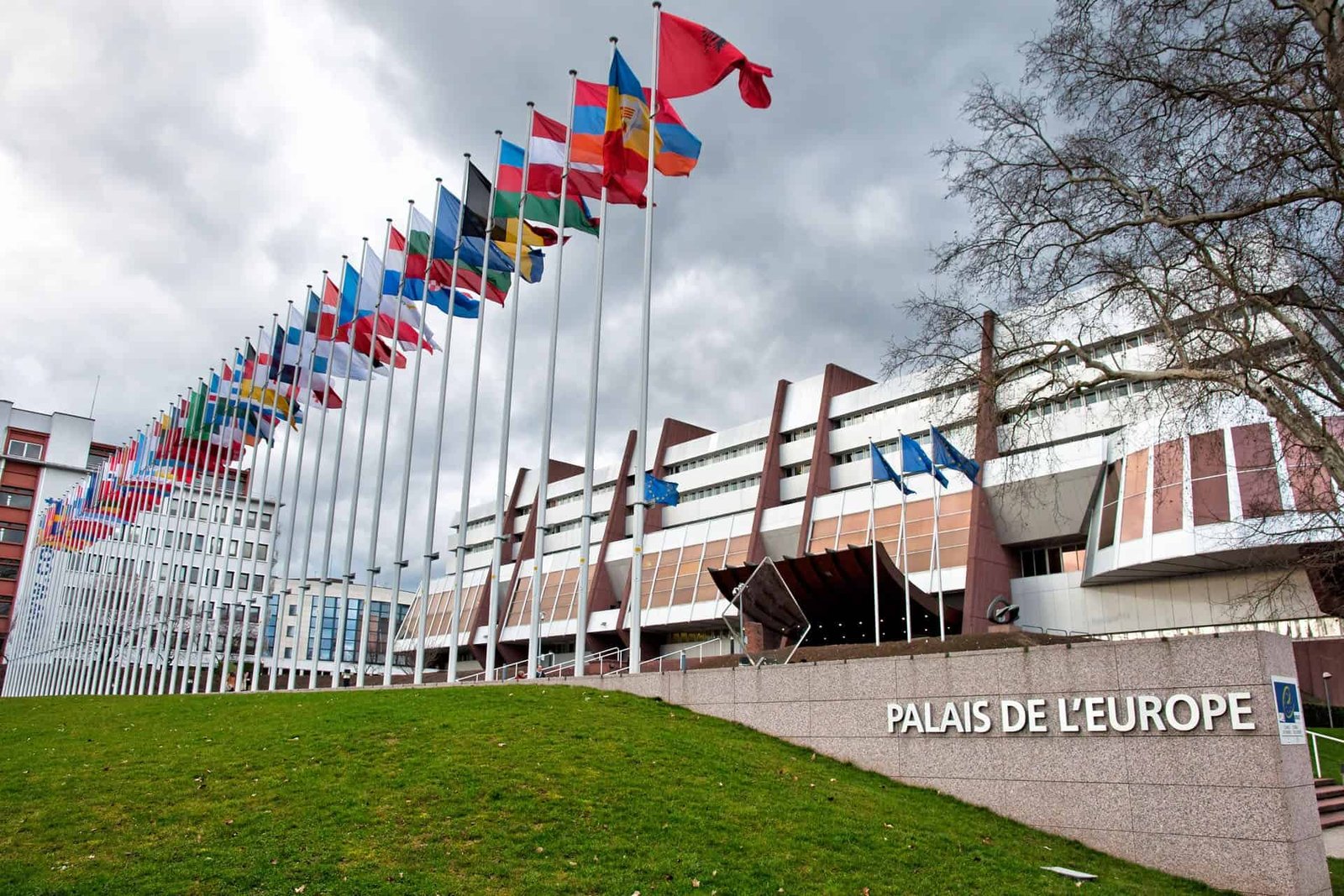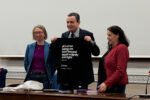Kosovo cannot count on having secure votes in the Ministerial Council of the Council of Europe just because 34 member countries have recognized independence. Diplomatic sources of some member countries that support Kosovo point out that, with QUINT’s suggestions, the vote can be postponed and not take place in May. That would delay the vote for at least a year. Liechtenstein, which has the next presidency, according to these sources, wants to make sure that the votes are in favor of the membership before putting it on the agenda of the May meeting. And it depends on QUINT’s attitude.
The process of Kosovo’s membership in the Council of Europe is progressing and next week, on April 16, the green light for this is expected to be given by the Parliamentary Assembly of the Council of Europe. After the report of the rapporteur Dora Bakoyannis was approved earlier, with which the positive opinion is given to admit Kosovo to the Council of Europe, the chances are high that the necessary two-thirds majority will be secured at this meeting of the Parliamentary Assembly. Although nothing should be taken for granted, the odds are that this vote will pass. But less certain is the vote in the Council of Foreign Ministers of the Council of Europe that takes place in the middle of May. The fact that the acceptance of Kosovo has not yet been placed on the agenda of this ministerial meeting does not mean anything, because the Council of Ministers cannot formally place it on the agenda without a vote in the General Assembly. If they put it on the agenda without the approval of the report in the Parliamentary Assembly, they would prejudice its decision, which, even if it can be foreseen, would not be seen as an act of respect.
But, in recent days, there have been more voices from diplomatic sources in member countries warning that the voting may be postponed, or there may be a risk that Kosovo will not receive enough votes to become a member of the Council of Europe. According to these sources, “it all depends on QUINT’s attitude”. “If QUINT supports membership, then this is expected to be placed on the agenda and in that case the 31 votes needed to accept Kosovo can be secured. But if any bad message comes from QUINT then everything changes. And in that case, the achievement of the necessary majority of two-thirds of the votes will either be postponed or jeopardized”, declare diplomatic sources from various member states of the Council of Europe.
Some of these diplomats even say that “they don’t understand what game QUINT is playing”, because he did not inform them in detail about his positions.
It’s no secret that the doubts that QUINT has and has incited in others about Kosovo’s membership in the Council of Europe are related to the initiation of the procedure for the establishment of the Association of Municipalities with a Serbian majority.
Some Western diplomatic sources have said that in the last meeting that the QUINT ambassadors had with the three institutional leaders of Kosovo (the president, the speaker of the Parliament and the prime minister) “they verbally conveyed a demarche with the request that they at least send it for review in the Constitutional Court the draft of the statute for the Association of municipalities with a Serbian majority”. Although there was an expectation that this demarche would be submitted in writing, it is said to have been conveyed orally. Diplomats fear that the lack of a positive response from Kosovo could result in the lack of QUINT support for Kosovo’s membership in the Council of Europe. “This would bring us to an unknown and unpredictable situation. Because there are countries that have recognized Kosovo and that support membership in the Council of Europe, but would change their position if they receive a signal from QUINT”.
According to these sources, Kosovo cannot count on having secure votes in the Council of Ministers of the Council of Europe only due to the fact that 34 member countries have recognized independence. These diplomatic sources, coming from several member countries that support Kosovo, note that with QUINT’s suggestions, the vote can be postponed and not take place in May. This would delay the vote for at least a year because the Council of Foreign Ministers has regular meetings only once a year. In order to accept a new member country, voting can also be done at other levels in the Council of Europe by representatives of member countries, such as by ambassadors, but in that case a unanimous vote would be required, which is impossible in the case of Kosovo. Liechtenstein, which has the next presidency, according to these sources, wants to make sure that the votes are in favor of the membership before putting it on the agenda of the May meeting. And it depends on QUINT’s attitude.
“I don’t believe that QUINT would vote against it. And I don’t believe QUINT would invite countries to vote against it. Because that would be a huge defeat for QUINT himself. But also from the QUINT countries we are receiving different signals because there are two countries that are more engaged in favor, two that are almost against, while the actions of the United States of America are very enigmatic”, a diplomat told TIME of a western country.
Even some diplomats have said that even the deputies in the Parliamentary Assembly of the Council of Europe and those from the countries that have recognized Kosovo, from their respective ministries are receiving recommendations to vote against in the Assembly as well. Therefore, it may happen that not all MPs coming from countries that have recognized the independence of Kosovo will vote in favor. But on the other hand, voting is also done based on the agreements in the parliamentary groups of the political parties. And here Kosovo has the support of the main groups such as the European People’s Party, the Socialists, the Liberals and the Greens, and to some extent the Conservatives. But even those who come from countries that do not know Kosovo can vote against. Despite this, the chances are high that the parliamentarians will approve the decision because only the votes of those who are present at the meeting and not 2/3 of the entire Assembly are counted. In contrast to this, the Kosovo Council of Ministers needs 31 votes from 46 member countries.
Diplomats say that if it happens that Kosovo is not admitted to the Council of Europe, “this would not be the result of Serbia’s commitments but the result of QUINT’s positions”. However, the same sources say that they are not clear why the EU has not reacted more harshly to Serbia’s actions to actively work towards preventing Kosovo’s membership in the Council of Europe. “At least the EU should have said clearly and publicly that this violates the agreement”, said a diplomat.
In case of failure of efforts for Kosovo’s membership in the Council of Europe, it will be unclear what will happen next. There is no answer to the question of what would mean the vote in which Kosovo would not secure enough votes in the Council of Ministers. Would this also mean the end of the process, or would the voting have to be repeated in the future, or how to act? Therefore, the option according to which, at the suggestion of QUINT, the vote would be postponed to avoid unpleasant situations seems more realistic. If QUINT would support the vote, then the chances are high that Kosovo will be accepted as the 47th member of the Council of Europe in mid-May.
The European Union is trying to give the impression that it “does not interfere in this work” and is sitting on the sidelines because “the Council of Europe has no connection with the European Union”. But on the other hand, it does not react to the behavior of Serbia, which violates the agreement, the purpose of which has been the integration of Kosovo into international organizations, so that Serbia does not oppose this. In the EU, they are only afraid of how this will reflect on the continuation of the dialogue.







